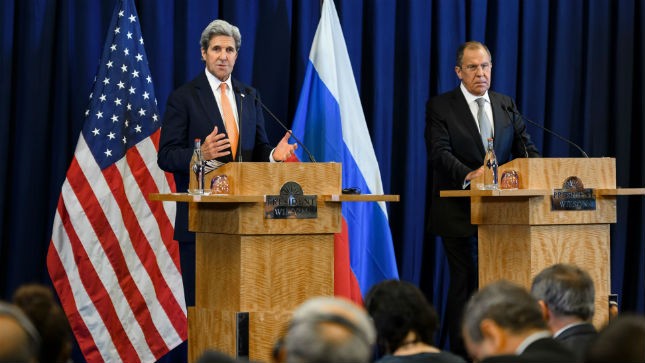US, Russia cheer new peace deal on Syria

Marathon peace talks between the U.S. and Russia have reportedly produced a sweeping new agreement on Syria, including a nationwide ceasefire and coordinated strikes against the Islamic State in Iraq and Syria (ISIS) and al Qaeda-affiliated militants.
The top Russian and American diplomats on Saturday cheered the details of the potential breakthrough deal, which includes increased humanitarian aid to areas of Syria badly besieged by the country’s long, bloody civil war.
“Today, Sergei Lavrov and I, on behalf of our presidents and our countries, call on every Syrian stakeholder to support the plan that the United States and Russia have reached, to … bring this catastrophic conflict to the quickest possible end through a political process,” Secretary of StateJohn Kerry said in Geneva, according to Reuters.
Kerry said the peace deal, worked out through weeks of negotiations, “has the ability to provide a turning point,” should all sides honor a cessation of hostilities set to begin at sundown Monday.
The Associated Press reported that Moscow will pressure Syrian leader Bashar Assad to halt government offensives against many areas of armed opposition, which have been seeking the end of his rule for more than five years. If the ceasefire holds, the U.S. and Russia will begin intelligence sharing and targeted coordination against ISIS and the group formerly known as the Nusra Front.
“No one is building this based on trust,” Kerry said, according to the AP. “It is based on a way of providing oversight, and compliance, through mutual interest and other things. If this arrangement holds, then we will see a significant reduction in violence across Syria.”
More than 400,000 people have died and millions more displaced from Syria. Officials hope the new agreement will increase the ability to provide supplies and medical care to Aleppo, which has been running dangerously low on food and fuel.
“This is just the beginning of our new relations,” said Lavrov, the Russian foreign minister.
The Hill